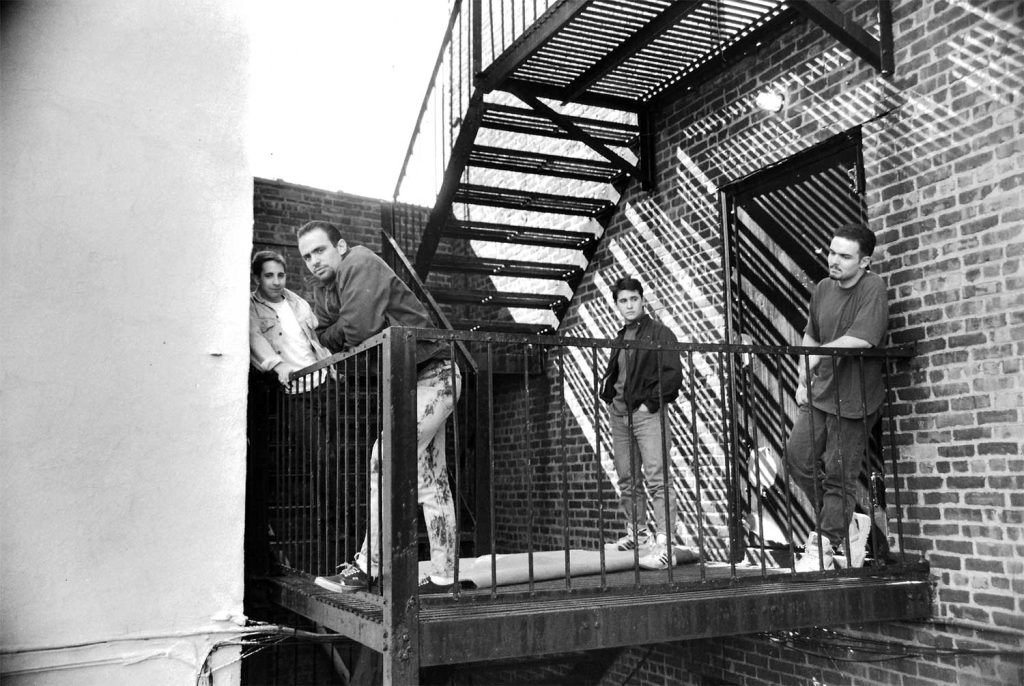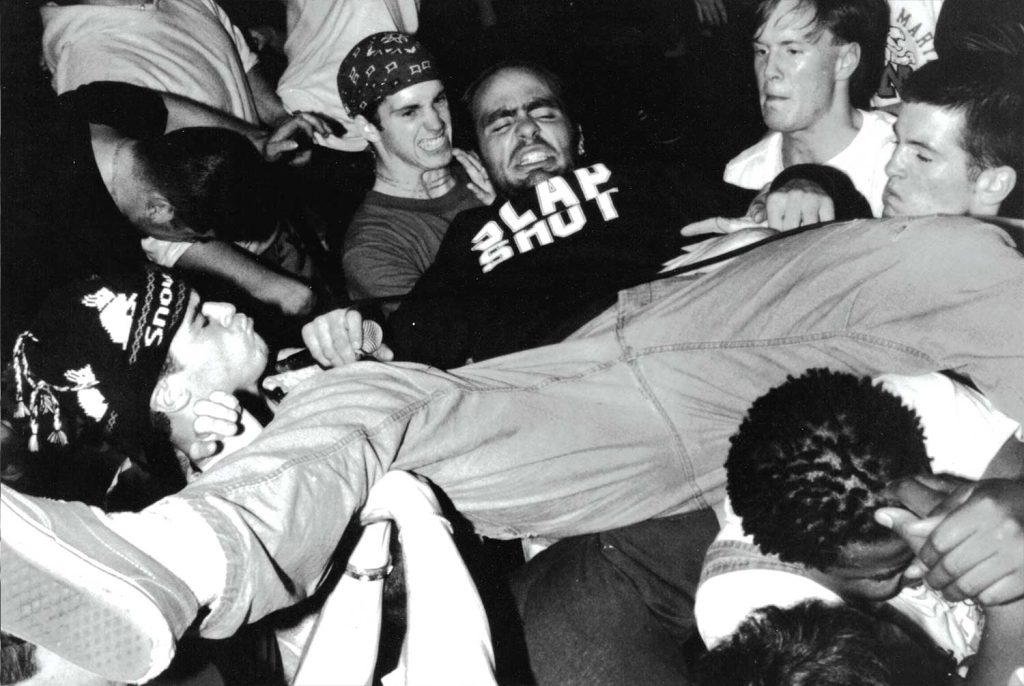History
“Everything you need to know is out on the street. Every lesson to learn carved into concrete.”
Killing Time
Their legendary debut album, Brightside (1989, In Effect Records), is now considered a cornerstone of NYHC. With tracks like “Backtrack,” “Telltale,” and the title track “Brightside,” the record blended the speed and fury of hardcore with surprisingly tight, almost metallic precision. It was tough, smart, and totally unrelenting — setting a new bar for the genre.
At the heart of Killing Time’s sound was the signature drumming of Anthony Drago, the powerful vocals of Anthony Comunale, the razor-sharp riffs of guitarist Carl Porcaro, and the relentless bass of Rich McLoughlin. Together, they forged a sound that was as brutal as it was honest.
In 1992, the band became a five piece with the addition of Alex Gopoian taking over on bass and Rich McLoughlin sliding into the rhythm guitar spot. Shortly after, they followed up with the Happy Hour EP, showcasing a more refined sound without sacrificing grit. The EP surprised fans by mixing melody with weight, revealing the band’s ability to evolve while staying true to their roots.
After a brief hiatus, during which bassist Sean O’Brien replaced Gopoian, the band returned with The Method (1997), a full-length album that further expanded their sonic palette, introducing more complex song structures and deeper lyrical content. Though less raw than Brightside, it showed the band’s maturity and dedication to their craft. O’Brien left the group in 2005 to be replaced by Chris Skowronski.
In 2010, Killing Time roared back once again with Three Steps Back — a blistering return to form that combined the old-school toughness fans loved with sharp, modern production. Songs like “24” and “Rope a Dope” proved they hadn’t lost a step, and that their influence was as relevant as ever.
On December 21, 2020, the band lost their friend and founding member Rich McLoughlin. The outpouring of love from fans spoke to Rich’s connection to the scene and his larger-than-life personality. He is missed every single day.
Still active and still touring today, Killing Time continues to bring their explosive live show to fans across the globe, proving that real NYHC never dies — it just gets stronger with time.
Whether you’ve been around since the tape-trading days or just caught on through the next wave of hardcore revival, one thing’s certain: Killing Time remains one of the most vital and uncompromising bands in hardcore history.




